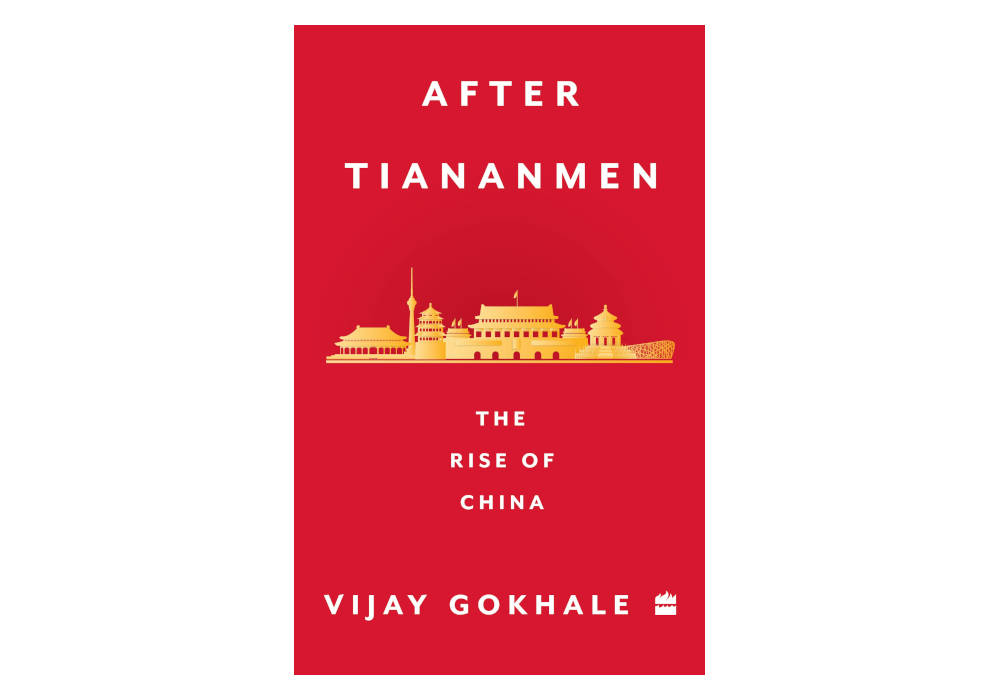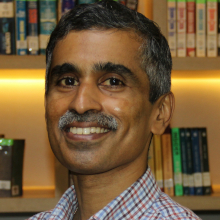History is malleable in communist China—it is reshaped and rewritten to meet the political and ideological objectives of the moment. Given China’s current weight in international politics, the story of the rise of China could well enter the realms of mythmaking both within and outside the country without works such as this volume under review. Certainly, under Xi Jinping, the current General Secretary of the Communist Party of China (CPC), the role of Deng Xiaoping who launched the reforms and opening-up process in the late 1970s and shepherded it through much turbulence is already being sidelined.
Former Indian diplomat, Vijay Gokhale’s book, however, attempts to set the record straight about what he calls the ‘interregnum’ (p. x) from 1992 in the waning years of Deng Xiaoping to 2012, when Xi took over. During this period successive General Secretaries Jiang Zemin and Hu Jintao—the former seen as a showman, even a buffoon and the latter as simply boring—quietly but resolutely built up both the capacities and narratives that would help their successor to declare more boldly and confidently the CPC’s challenge to the current liberal global order led by the West. This is a dispassionate and clear-eyed account by one of India’s foremost China specialists of that country’s international political recovery in the aftermath of the Tiananmen Square ‘incident’ of 1989 and will be essential reading for scholars and practitioners alike.
Of particular note—and a wonderful, essential antidote to Western-dominated output on China’s rise and foreign policies—is Gokhale’s description of China’s ‘playing the West’ and attempts at ‘wooing the rest’. The former diplomat pulls no punches as he gently skewers the West—the US and the Europeans—for their greed, willful blindness and hypocrisy in policies towards China ignoring India’s experiences with China and its warnings until quite recently. The CPC’s great skill in constructing false narratives, including its playing victim of Western imperialism as a way of extracting concessions, is recounted with great felicity. China’s art of getting its detractors to apologize for slights real and imagined is probably worth a book in itself.
Deception is often seen as another fine art in the practice of Chinese foreign policy—consider its participation in and commitments made at trade negotiations and other multilateral forums, for example. But China’s purchase of the Ukrainian aircraft carrier Varyag under the pretense of turning it into a floating casino in Macao is probably one of its finest examples. The charade went on for years until the Varyag was commissioned as the Liaoning in September 2012. Described in great detail in a chapter on China’s so-called Malacca Dilemma, the real worth of Gokhale’s recounting is in the larger picture he draws of how China accompanied its naval acquisitions with bogus historical legal narratives as well as insincere diplomatic negotiations with the Southeast Asians to today sit in effective possession of key features in the South China Sea.
As he did in his first book, Tiananmen Square: The Making of a Protest, there is excellent detail and a sharp picture outlined of the CPC’s factional fights, deep-rooted corruption, and ideological slide in the Jiang-Hu era even as it maintained its tight grip on power and nipped potential challenges—whether individual or of ideas—in the bud. This is another great value of Gokhale’s book for no study of China’s international relations can be complete without an understanding of its domestic politics and particularly, the Party’s ruthless determination to stay in power.
There is no question that Gokhale’s analyses are spot on. However, for Indian readers as well as others who read his chapter “Attempts at Modus Vivendi” on India-China relations in this period, this then raises at least two important questions.
One, why is it that the wider Indian public do not have access to such analyses from diplomats when they are in service? There is no secret that is shared here nor any sensitive material but simply individual analysis that could just as easily have been shared widely and publicly during time in service as it is now and to everyone’s benefit. The fact that many retired Indian diplomats are suddenly prolific in writing books suggests they had much to say even when in service but could not say it. Perhaps, it is time to move away from outdated service rules on secrecy and certainly from the inherent lack of accountability and transparency that has been a hallmark of the Indian government for decades.
Given the increasing China competence outside the four walls of government, it would be useful for parties on either side of these walls to interact and exchange more with each other as a way of improving and informing both their own analyses as well as that of the other. This is happening already but nowhere near the scale that it needs to be at.
Two, why is it that despite such excellent analyses as Gokhale’s in this book, the Indian government has produced sub-optimal outcomes in its China policy on several occasions? Naturally, ‘sub-optimal’ is this reviewer’s viewpoint but it cannot be anyone’s case that India has got China right consistently even if its diplomats—and analysts, let us not forget—have got China right as much as if not more often than their better-resourced counterparts in the West. Gokhale, for instance, points out the Chinese led the Europeans on in ‘inconclusive talking shops’ in the wake of Tiananmen (p. 63). And yet, India has for long involved in such talk-shops as the Russia-India-China trilateral or the BRICS—platforms which have offered China opportunities to grandstand and dissemble than produced any tangible benefits for India. India’s benefits, if any, might have been limited to creating the impression that India could balance against the West if it so desired. That this has come at some cost at least in terms of time lost and attention diverted from the looming China challenge might be evident now.
To his credit, Gokhale does acknowledge that India’s “attempts at building a modus vivendi [with Chinese] through the terms of eight Indian prime ministers… may not have been entirely successful” (p. 163) in the period under study in this book. He notes further India’s “steep learning curve” and takes as positives the fact that India “bought a quarter century to focus on its economic development and growth” as well to deal with Pakistan-supported terrorism (p.164).
If one might conclude by highlighting a shortcoming, it is that a book on China by an Indian diplomat contains not a single reference to work by Indian scholars. The only Indians referred to in this work are other former diplomats, a former intelligence officer and a journalist or two. The period under study was not so entirely devoid of quality work by Indian scholars—consider for example, the pages of one of the oldest journals of Chinese Studies in the world, namely, the China Report published by the Institute of Chinese Studies in Delhi. Since Gokhale chides the West not so gently for ignoring Indian views and experiences of China for long decades, it is only right that India’s own scholars are not ignored either. While conditions were particularly challenging for Indian scholars of China in the period that Gokhale studies, the good news is that conditions are today perhaps not so bad, even if they could get better. One might, therefore, hope that the far greater number of scholars of China in India today will find their work cited in future analyses of Xi Jinping’s era at least. Their exclusion would only leave those analyses that much poorer.
In the meantime, such efforts as Gokhale’s must be welcomed and encouraged even as the Indian government improves its transparency and support for indigenous efforts at studying China as well as other parts of the world.


